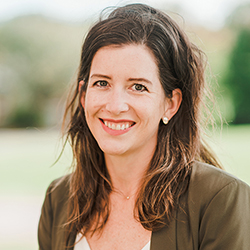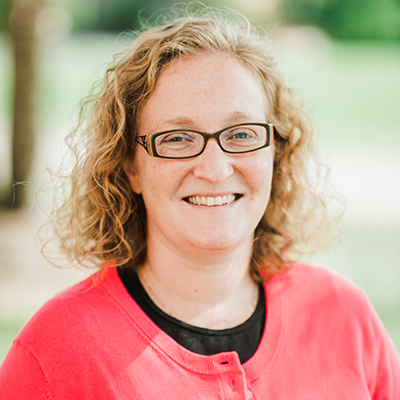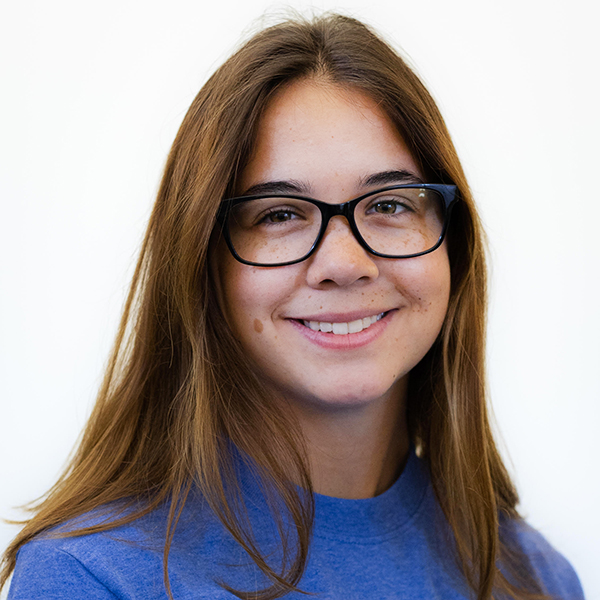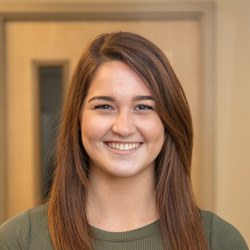Bachelor of Social Work
The Bachelor of Social Work program at Saint Joseph's College prepares students for entry-level generalist practice as a social worker and provides a strong foundation for graduate work in a Master of Social Work (MSW) program.
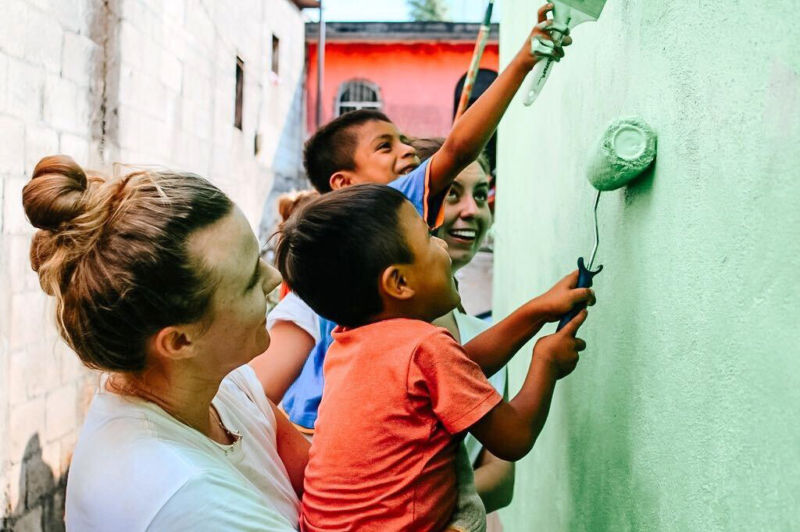 The program provides an academically challenging, socially relevant curriculum designed to equip students with the knowledge, values, and skills necessary for careers in social work. Graduates will be qualified for entry-level positions in service areas such as addictions, child welfare, mental health, and gerontology, and in a variety of settings, including, schools, hospitals, non-profit agencies, and juvenile detention centers.
The program provides an academically challenging, socially relevant curriculum designed to equip students with the knowledge, values, and skills necessary for careers in social work. Graduates will be qualified for entry-level positions in service areas such as addictions, child welfare, mental health, and gerontology, and in a variety of settings, including, schools, hospitals, non-profit agencies, and juvenile detention centers.
The hands-on curriculum allows students to gain practical experience through internships and service-learning opportunities. These are valuable resume builders for future employment. Students will have the opportunity to start networking immediately by joining the Student Social Work Society, the National Association of Social Workers as well as the Phi Alpha National Honor Society for Social Work, if eligible.
CSWE Accreditation
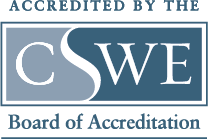 Saint Joseph's Bachelor of Social Work program is accredited by the Council on Social Work Education’s Board of Accreditation.
Saint Joseph's Bachelor of Social Work program is accredited by the Council on Social Work Education’s Board of Accreditation.
Accreditation of a baccalaureate or master’s social work program by the Council on Social Work Education’s Board of Accreditation indicates that it meets or exceeds criteria for the assessment of program quality evaluated through a peer review process. An accredited program has sufficient resources to meet its mission and goals and the Board of Accreditation has verified that it demonstrates compliance with all sections of the Educational Policy and Accreditation Standards.
Accreditation applies to all program sites and program delivery methods of an accredited program. Accreditation provides reasonable assurance about the quality of the program and the competence of students graduating from the program.
View our Social Work Program Assessment of Student Learning Outcomes (updated June 2022).
At a glance
- Double major friendly (and encouraged!)
- Strong preparation for career and graduate studies
- Emphasis on experiential learning with two student-selected internship placements (with regular supervision from a licensed social worker in the field)
- Opportunities for faculty-student collaboration, with access to the Social Science Observation Lab
- Faculty (full time and adjunct) with 50+ collective years of professional experience and networks in the field
- Integrated Senior Seminar course taken online by online and campus students together creates a community of online and campus learners
- Graduates will be qualified to become licensed as social workers
- Graduates will be eligible for advanced standing, shortening the path to an MSW (100% of our graduates who applied for Advanced Standing
in an MSW program were accepted.)
What is SARA?
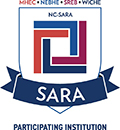
Saint Joseph's College of Maine has been approved to participate in the National Council for State Authorization Reciprocity Agreements.
The State Authorization Reciprocity Agreement is an agreement among member states, districts and territories that establishes comparable national standards for interstate offering of postsecondary distance education courses and programs. It is intended to make it easier for students to take online courses offered by postsecondary institutions based in another state. SARA is overseen by a National Council and administered by four regional education compacts. For further information, please visit the National Council for State Authorization Reciprocity Agreements (NC-SARA) website at http://nc-sara.org/content/
Maine’s Acting Education Commissioner, Bill Beardsley says, “SARA facilitates Maine’s interface with education opportunities across the country while bypassing the old case-by-case burdensome course approval system. Maine students benefit and state red tape is minimized with no loss of accountability. It is a state consortium approach we value.”
Professional Licensure
It is important to note that NC-SARA does not deal with professional licensing board approval for any courses or programs leading to professional licensure. Saint Joseph’s College of Maine cannot know nor guarantee where our coursework will meet requirements for professional licensure, endorsements, or license renewal in states outside of Maine. If you are planning on using our coursework towards a license or credential in your state, we recommend that you consult with the appropriate licensing agency or board in the state for which you seek to obtain licensure.
NC-SARA Professional Licensure Directory: https://www.nc-
Links to Professional Licensure Boards/Requirements
National Association of Long Term Care Administrator Boards
U.S. Department of Education
Nursing
Social Work
https://www.socialworklicensure.org/
Curriculum
Courses required for the Bachelor of Social Work (BSW) degree include social work specific classes in human behavior, policy, research, practice, and field internships, as well as other closely aligned social sciences with the profession of social work.
Students will gain practical experience through two internships, including a full-year placement. The College works with agencies and organizations in hospital systems, private non-profits, schools, drug rehabs, and other community agencies. Internship supervisors are specifically trained to support SJC students in their academic and professional development.
The program frequently offers workshops, trainings, and other professional development opportunities to students free of charge.
Complimentary minors for BSW students include criminal justice, sustainability studies, or psychology. Dual majors may be available by working with your academic advisor.
A minor in the social services profession is also available and requires students to take 18 credits of social work specific course work. The social services profession minor is appropriate to pair with majors such as criminal justice and/or psychology.
Some of our faculty
Student stories
Brianna is working with faculty to develop a training for students to become advocates who work hand-in-hand with Campus Security in the event a student experiences violence on campus. The training, developed by the Maine Coalition to End Domestic Violence, will provide the mandated training for any student looking to do direct advocacy/volunteer work with any of the area domestic violence shelters in the area.
“These experiences (her internship, training in suicide prevention) have pushed me to want to provide more support and structure for students. With this I would like to start a program on campus for students to become advocates for other students. If there is an assault on campus this student could provide additional support and have additional training to be able to handle these situations. This provides extra support for students going through a difficult time, while also allowing students to be able to serve as an advocate and gain more experience.”
“I spent a summer working with our Institute for Integrative Aging (IIA), researching the benefits that come with 55+ residential communities being on college campuses. I also helped create a student survey to gather student perceptions of IIA and how open they are to connecting with older adults in the future. Offering a student’s perspective allowed for intergenerational collaboration, which is part of IIA’s mission. The most impactful work I did though was calling older adults weekly to combat social isolation during the pandemic. IIA showed me that working with older adults is so rewarding and I hope with my involvement on campus I can encourage more students to get involved with IIA!”
“One of the perks of being a social work major is that there is such a wide variety of populations and work settings to choose from. Saint Joseph’s BSW program exposes you to different fields, to help you get a sense of what fits you best. We also have two required internships, which offer direct, realistic experience in social work. This prepares us for life after SJC, whether it's graduate school or jumping straight into the workplace.”
Career moves
The social work major is a strong foundation for professional careers in various organizations including Child Welfare, Corrections, Health Care, Policy and Planning, Private Non-Profits, and non-governmental agencies (NGOs). According to the United States Bureau of Labor Statistics the profession is growing faster than most and the U.S. Government has loan forgiveness programs to help social workers with some of their student loans. Individuals with a BSW are prepared for entry-level direct practice within the field. Most states will require licensure, certification. Additional information on professional licensure can be obtained at the Association of Social Work Boards and through the State of Maine Board of Social Work Examiners.
Recent alumni career paths
- Child Welfare
- Corrections
- Healthcare
- Policy & Planning
- Private Non-Profits
- NGOs
